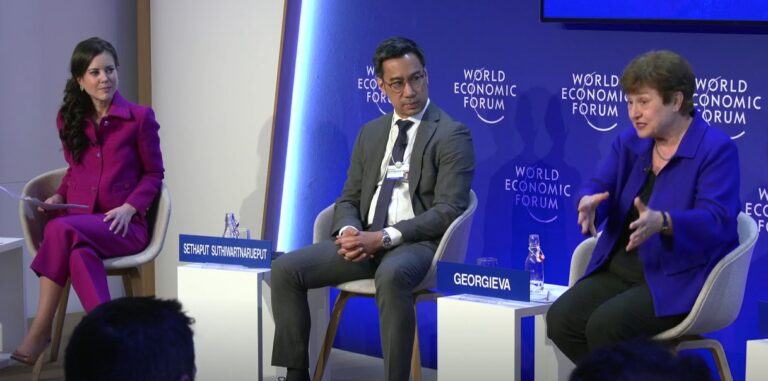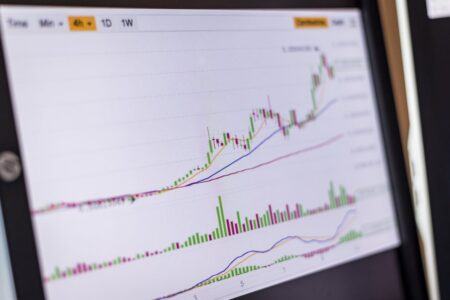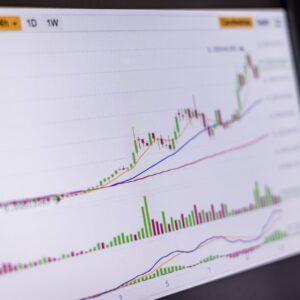Recently, Kristalina Georgieva, the managing director of the International Monetary Fund (IMF), shared her thoughts on cryptoassets in general and stablecoins and central bank digital currencies (CBDCs) in particular.
The IMF, which was established on 27 December 1945, “works to achieve sustainable growth and prosperity for all of its 190 member countries” by “supporting economic policies that promote financial stability and monetary cooperation, which are essential to increase productivity, job creation, and economic well-being.”
The IMF Chief’s comments about crypto were made on May 23 while she was speaking at a panel titled “Central Bank Digital Currencies” (moderated by CNN International anchor and correspondent Julia Chatterley)
The IMF chief had this to say about crypto:
“Well, when somebody promises you 20% return on something that is not backed by any assets, how would we normally call this thing? We would call it a pyramid; in other words, this is a pyramid in the digital age, but we should not be mistaken to immediately classify everything in the digital money world in a negative way because there are three categories.
“The first one is central bank digital currencies. They are backed by the state, and they offer finality when transactions are settled. This is a universe that, as you said, 90% of countries are exploring. Who crossed the finish line first? The Bahamas with the Sand Dollar, but now we have Nigeria stepping there. And there are many pilots, of which the largest universe of a pilot, which actually made me wake up and say ‘well, this thing is moving so fast that the international monetary fund has to embrace it’… China, a pilot with 128 million participants.
“Now the second group — these are the stable coins. Some of them deserve the name because they are backed by assets and when they’re backed by assets 1:1, they’re really stable. They look a little bit like many market funds, but they are money market funds in this digital space.
“And then we have lower degree of stability. The less there is a backing, the more you should be prepared to take the risk of this blowing in your face, which is what happened some days ago. I want to be very very direct that I do feel the for the people who lost money because part of the reason they lost money is not really being well-educated on this new investment world.
“And I want to go to the third universe, the crypto that is really not pretending to be backed up by anything, not designed to be backed up by anything. It is really the trust that is built in a way that brings value. It is an investment class… I get occasional hate tweets when I say that Bitcoin maybe called coin, but it’s not money.
“Why? Because a prerequisite for something to be money is to be a stable store of value. So, you actually can turn around it, and when the first country embraced Bitcoin and I was asked ‘what did we think at the fund?’, I said ‘well, it’s a sovereign decision, doesn’t make it a good decision’…
“So, my my point here is that there are very important responsibilities for the central banks and also for other regulators — regulators of financial services, regulators of this asset class — to make sure that everybody can step into this world with some confidence, that we understand that for CBDCs the biggest question is interoperability, how are they going to connect to each other, but for stablecoins, for crypto assets, it is responsibility for some regulation and financial education.
“I would beg you not to pull out of the importance of this world because of what Julia said it — it offers us all faster service, much lower cost, and more inclusion, but only if we separate apples from oranges and bananas, and that is our job. We have a huge responsibility to do it well.“
On May 22, Christine Lagarde, President of European Central Bank (ECB), made a number of interesting comments about crypto while appearing as a guest on Dutch TV show “College Tour“.
The Paris-born French politician, economist, and lawyer has been the ECB President since November 2019. Before then, she served for over eight years as the Managing Director of International Monetary Fund (IMF).
The episode of Dutch TV show “College Tour”, which provides a forum for students to ask questions of interesting guests such as Lagarde, was aired on May 22. Below are a few highlights from her comments about crypto.
On Decentralization of Finance and Crypto
“I was not thinking in terms of investing but you take me to that. So, I’ll go along with you. I’ve said all along that cryptoassets are highly speculative, very risky assets. If you want to invest there, it’s your choice. But what I’m really concerned about when it comes to cryptoassets is that those investments be made by people who have their eyes wide open about the fact that they can lose it all.
“I mean, it’s gone down by 20% last week, in the matter of one week. I’m concerned about, you know, those people who assume that it’s going to be a reward, who have no understanding of the risks, who will lose it all, and who will be terribly disappointed, which is why I believe that they should be regulated.“
On Her Advice Regarding Crypto
“What I say is, number one, those who invest should know it cannot be this crypto hype where, you know, because a friend of a friend has made X, you think that it’s going to work and it’s going to continue to increase.
“It’s super risky assets. My very humble assessment is that it is worth nothing. It’s based on nothing. There is no underlying assets to to act as an anchor of safety… The day when we have the central bank digital currency out, any digital euro, I will guarantee. So, the central bank will be behind it, and I think that’s vastly different from any of those things.“
Newsletter
To make sure you receive a FREE weekly newsletter that features highlights from our most popular stories, click here.
Disclaimer
The views and opinions expressed by the author, or any people mentioned in this article, are for informational purposes only, and they do not constitute financial, investment, or other advice. Investing in or trading cryptoassets comes with a risk of financial loss.








